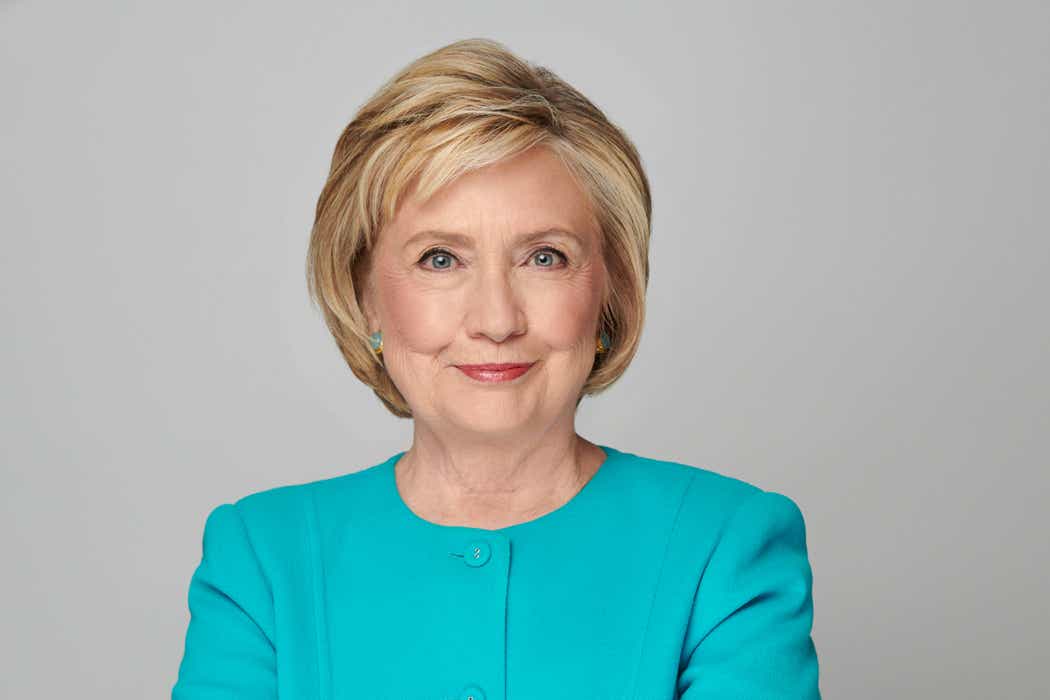On this week’s episode of Next Question, Katie talks to former Secretary of State and 2016 Democratic presidential nominee Hillary Clinton about everything from their encounters with sexism in the workplace to policing in the U.S.
Read on for some takeaways from their conversation.
“I'm very sorry that the beginning of this pandemic was in effect cast as a political challenge as opposed to a scientific and public health challenge.” Clinton described the U.S. response to the COVID-19 pandemic as a “culture war” rather than a unified effort to overcome the virus. Ultimately, she said, former President Trump hurt his chances at reelection by “pandering to the most radical conspiracy theorists in his political ambit. And it cost a lot of lives.”
“I think the pandemic showed how important deliberative, fact-based leadership is.” Cinton praised the Biden administration’s consistent modeling of good behavior and following the guidance of the nation’s scientists even as that guidance changes. “Science is a learning phenomenon - you keep testing things.”
“A lot of that can't be fixed by policy. It has to be fixed by attitudes and behavior.” While policy measures like paid family leave and affordable childcare will help ease the burden on women juggling jobs and motherhood, Clinton said, balancing out the division of labor in the home will come down to attitudes.
“I've become increasingly convinced over the last year, while I've had a lot of time on my hands, that we need a new American story that includes everybody and gives proper respect to everybody's role in our society.” Clinton said this year has highlighted the role of essential workers, who have typically been underappreciated, in our society. When thinking about the future of the U.S., she said, we have to do so in a way that supports the people who have kept our country going. “It is about helping everybody because it's in everybody's interest that we do.”
“Are we a perfect nation? Absolutely not. Have we accomplished a lot that we should be proud of and build on? Absolutely.” Clinton said there’s a middle ground where we can acknowledge our imperfections while still seeing it as a great country.
“Younger women said to themselves...if more of us speak out, if we have a hashtag, if we call it for what it is, there is strength in numbers. You don't have to deal with this on your own.” When she entered the workforce, Clinton said, women dealt with sexism and inappropriate behavior by sucking it up and deciding not to let it “knock you off course.” It’s “all to the good,” she said, that women today have social media to amplify their voices and have decided to challenge those behaviors.
“Literally a man reached across the table, grabbed me by my turtleneck and just twisted it around and said, 'You don't tell us what to do.'” Clinton described a moment when she was working on Jimmy Carter’s presidential campaign and told a group of male organizers they needed reporting and accountability in their efforts. “None of these other men thought there was anything wrong with this guy threatening me and telling me that I had no business telling them, as a representative of the Carter Mondale campaign, what they were expected to do, what was my remedy?”
“Forcing the world to watch that nearly 10 minute strangulation of Mr. Floyd meant nobody could look away.” Clinton said the video evidence in the trial of Derek Chauvin was a game changer. She is also optimistic that the President Biden’s administration will usher in a new era of working to improve policing in the U.S. “He has a deep understanding of the importance of good policing, but I think he also has a deep sense of responsibility to try to fix what is clearly broken,” Clinton said.
“I don't want to stop worrying about polarization, but I want to put the responsibility where it mostly belongs, and that is on the Republican party because they have become almost a caricature of a far right, white supremacy driven organization that tries to upend our elections, which pledges fealty to an authoritarian wannabe.” Clinton emphasized that while vocal subsets of the Democratic Party make it seem as though it’s very far to the left, the Republican Party is ultimately responsible for polarization through its denials of reality.
This interview has been edited and condensed.









